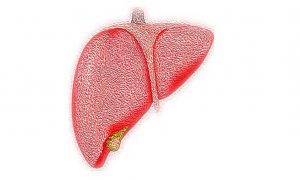Memory and concentration are two important aspects parents look into for their children during the developmental stage. Here are few dietary practices to inculcate to boost cognitive functioning in children.
Read More: Heart Health In Women: How Menopause Impacts Your Cardiovascular System? 7 Preventive Tips To Know
In the growing and developing stage of children, nutrition plays a crucial role. Fodd and lifestyle help to properly children in the direction of health and fitness and boost the growing stage. Nurturing cognitive functions helps to boost memory and concentration power. For parents, this often becomes a point of concern during the exam time. In this digitally driven world, kids are often glued to screens and that affects their concentration in them. The attention span has significantly reduced in children leading to a cause of concern. Hence, adapting to lifestyle habits to keep cognition at optimal levels is important.
What the body consumes affects every part of the body and here are a few dietary practices follow for children to increase memory power and concentration.
Read More: Going For A Kidney Transplant? Know What All To Take Care Of (Pre and Post The Surgery)
Dietary Practises For Kids: 5 Tips to Boost Memory and Concentration
- A Balanced Diet: Provide your child with a well-balanced diet that includes a variety of nutrient-rich foods. Include whole grains, fruits, vegetables, lean proteins, and healthy fats in their meals. This will provide essential vitamins, minerals, and antioxidants necessary for brain health.
- Include Omega-3 Fatty Acids: Omega-3 fatty acids, particularly DHA (docosahexaenoic acid), are important for brain development and function. Include food sources rich in omega-3s, such as fatty fish (salmon, mackerel), chia seeds, flaxseeds, and walnuts in your child’s diet.
- Golden Rule of Hydration: Dehydration can impair cognitive function and affect concentration. Ensure your child drinks enough water throughout the day to stay hydrated. Limit sugary drinks and encourage water consumption.
- Limit Sugar and Processed Meal: Processed foods and sugary snacks can lead to energy spikes and crashes, affecting concentration and focus. Minimise the intake of sugary snacks, sodas, and processed foods high in artificial additives. Opt for whole, unprocessed foods instead.
- Foods to Boost Brain Health: Certain foods are known to support brain health and cognitive function. Include foods like blueberries, spinach, broccoli, avocados, eggs, and nuts in your child’s diet. These foods are rich in antioxidants, vitamins, and minerals that promote brain health.
- Healthy Snacking: Establish a routine of regular meals and snacks to ensure a steady supply of nutrients and energy to the brain. Avoid skipping meals, as it can lead to low blood sugar levels, impacting focus and attention.
Read More: Cinnamon For Women: 5 Reasons Why This Spice Is Important Addition In Regular Diet
It’s important to note that a healthy diet is just one aspect of supporting memory and concentration in children. Other factors, such as adequate sleep, physical activity, and a stimulating environment, also contribute to their overall cognitive development. Encourage a well-rounded approach to their well-being, including a healthy lifestyle and a supportive learning environment.



































